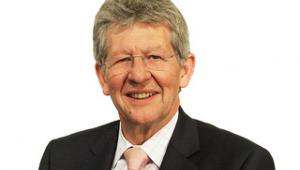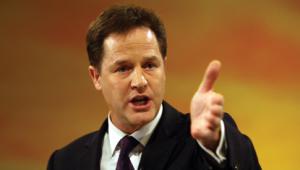By Richard Johnstone | 8 January 2014
The Department for Communities and Local Government has pledged to address Whitehall barriers holding up neighbourhood Community Budgets, a senior figure in the rollout of the initiative has revealed.
Community development group Locality was appointed by the government last month to lead an expansion of neighbourhood budget programmes, known as Our Place, to more than 100 new areas across England. The scheme brings local people, community groups and service providers together to identify where improvements could be made.
Locality chief executive Steve Wyler told Public Finance that local areas would begin to be selected for the scheme from January 20, with as many as 150 neighbourhood or community organisations being awarded initial grants to assess local services. These will allow groups to undertake surveys to identify where local people want changes, as well as analysing the extent of existing services across agencies and the total money being spent.
Following this, around 120 neighbourhoods will be selected in May to develop reforms so services better reflect local need across areas such as adult social care and local economic development.
Wyler told PF the government had now pledged to take action if this process revealed Whitehall obstacles to service changes.
The 12 pilot schemes that have already been completed across England revealed there were at times ‘tricky’ central barriers, he added.
‘Some of the things that DCLG and other departments attempted to do was… have a high-level attempt to clear away some of the barriers.
‘There were some things that proved slightly intractable – in some of the pilots, people were wanting to address things to do with training and jobs, and unfortunately the way the Work Programme is constructed made that very difficult.
‘We have a commitment from DCLG that staff at a pretty senior levels within Whitehall will be there to do what they can to clear away some of the difficulties.’
Wyler said another lesson from the pilots was that clear leadership from public agencies – such as Whitehall departments and councils – and local community involvement were both needed for success.
Among the initial round of projects were proposals to integrate public spending in White City in the London Borough of Hammersmith and Fulham, and a programme to coordinate health spending in Birmingham’s Castle Vale area.
High-level involvement from local authorities was particularly critical to drive the schemes, Wyler said. ‘I think having people at the most senior level in the authority, both councillors and officers, understanding the principles and feeling [this] will be an important contribution to what they’re doing across the council is vital.
‘We are seeing some authorities, partly because of the pressure of spending cuts and the growing demographic pressures, making an attempt to do things in a different and fresh way. [They are] not simply running a cuts agenda but trying to find new ways of shaping things and using resources differently and putting more energy into it.’
It was easier to introduce such an approach at a neighbourhood level, where changes can be implemented based on local relationships, he said. ‘Once you do that, some of the silo approaches of different departments start breaking away, and you can get better results for people in difficult circumstances,’ he added. ‘Those results might be cheaper as well, and I think there’s a growing conceptual awareness that this is part of the way forward. People now want to see what they can do practically to put those concepts into reality.’
Health and social care services and local economic development efforts were among the spending areas where Wyler said he would expect bids to come forward this year.
However, he stressed the programme was open to ideas covering all services.





















